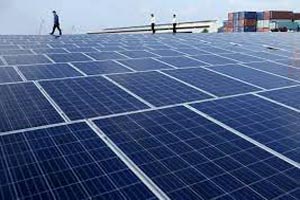
Boosting renewables in the mix
Pakistan must pursue a more ambitious plan to tap its variable renewable energy (VRE) — solar and wind power — potential to significantly increase its share in the country’s energy mix than the one planned in the National Transmission & Despatch Company (NTDC) 10-year Indicative Generation Capacity Expansion Plan (IGCEP) prepared last year. In its analysis of the IGCEP 2021-22, a German think tank, Agora Energiewendie, suggests that Pakistan has the potential to generate at least 33,000 megawatts of solar and wind power or more than 48 per cent of the the planned increase in electricity production to nearly 70,000MW in the next 10 years. That will result in generation cost savings of 15pc and emission savings of almost 50pc, says the recently commissioned Agora study titled ‘Solar and Wind Roadmap for Pakistan’. The study examines VRE scenarios beyond 2022 and reviews the 10-year generation expansion planning for Pakistan, evaluating the possibility and benefits of pursuing a more ambitious solar and wind power target by 2030-31. Based on the hourly dispatch of 2030, the study concludes that an increase in the planned total VRE capacity is possible by adding minor grid infrastructure reinforcements. “Increasing VRE to 33,000MW by 2030 or 60pc greater than the IGCEP planned 21,000MW has high benefits and is stable under all scenarios. For any unexpected change in demand or others, the annual tender capacities of solar and wind can be adjusted flexibly in the future,” it adds. German think tank suggests that Pakistan can generate 33,000MW through wind and solar power in the next decade.
|
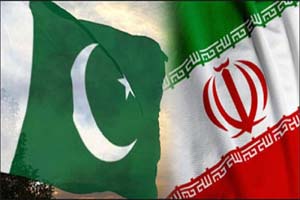
Pakistan, Iran ink MoU for 100MW power to Gwadar
Pakistan and Iran have signed a memorandum of understanding (MoU) for the supply of 100MW of electricity to Gwadar. Khurram Dastgir held meetings with Iranian Minister of Energy Ali Akber Mehrabian. Both ministers emphasized further strengthening of bilateral relations between the two countries, besides extending cooperation in the energy sector. They showed interest in initiating new joint ventures in the energy sector. The minister’s visit aimed at finalizing an agreement on power supply to Gwadar, which was initiated in his earlier visit in June 2022. In a record time of nine months, the electricity transmission line has been laid from Iran to Gwadar. For the finalization of the agreement, three sessions were held by technical teams in which extensive discussions were held. The project would be inaugurated at the earliest and it would ensure uninterrupted supply to Gwadar which would lay a foundation for a prosperous Gwadar.
|

Govt eyes Russian crude oil at $50/barrel
Top officials of the Petroleum Division are trying to procure Russian crude oil at close to $50/barrel, $10/barrel below the cap price imposed by G7 countries on Russian oil in the wake of the war on Ukraine, sources said. However, Russians are more interested in completing all the prerequisites before to inking an agreement that includes the mode of payment, shipping cost with premium, and insurance cost. Following that the country would respond about the discount in base price of the crude oil. The shipping of crude oil from Russian ports will take 30 days owing to which the per barrel transportation cost would incur at $10-15/barrel. However, the talks between Moscow and Islamabad are going in a positive direction with the hope that the GtG deal on Russian crude import will be inked soon before the end of the current month of March. The authorities are weighing their options to either use Pakistan National Shipping Corporation (PNSC) ships for transporting crude from the Russian port or to use the Russian tankers. The government would import one Russian crude oil ship to test the landed cost as compared to the existing cost of crude being imported from ADNOC of UAE and Saudi Aramco. To this effect, the secretary of Petroleum Division is in Karachi to further deliberate with the top management of PARCO, PSO, Pakistan Refinery Limited and other refineries regarding the import of Russian crude oil to process it for finished products. In case, the test ship’s cost is found lowered enough to bring down the prices of petroleum, oil and lubricants, Pakistan would give a green signal for cargos of Russian oil in a month which may be 2-4 in number. Since Pakistan is facing a US dollar liquidity crunch, it would pay Russia in the currencies of friendly countries that include China, Saudi Arabia, and UAE. The first oil cargo from Russia is expected to arrive in Pakistan by the end of April after the latter agreed to the former’s demand to import a single cargo first as a test case. Moscow has already offered to export 100,000 barrels of crude oil per day to Islamabad. Following Saudi Arabia that also exports around 100,000 barrels of oil per day, Russia will emerge as the second largest crude oil supplier to Pakistan if the both the countries sign a deal.
|
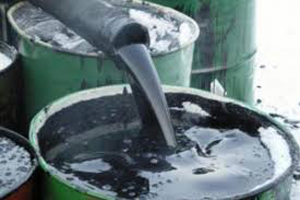
KSA extends $1.2b deferred oil payment facility till Feb 2024
Saudi King Salman has approved the extension of a deferred oil payment facility worth $1.2 billion to Pakistan till February 2024. According to sources, the Saudi government has extended the facility through the Saudi Fund for Development (SFD). “It is expected that Pakistan will avail the extended facility from March 23 to Feb 24,” they claimed. It may be noted that the facility was going to expire this month due to which the government of Pakistan asked for a year’s extension. It is worth mentioning here that the SFD and Economic Affairs executed an export finance agreement for imports of crude oil and refined petroleum products from Saudi Arabia in Feb 2019 on deferred payment basis. Sources said that Pakistan had imported oil worth $769 million in the first year and $1.11 billion during the second year under the agreement. They said that Pakistan imports oil on a deferred payment basis worth $50 million every month. Under this facility, the Saudi government has tasked Saudi Arabian Oil Company (Saudi Aramco) and Saudi Aramco Products Trading Company to export crude oil and POL products wherein PARCO and NRL are designated importers from Pakistan due to long term crude oil agreements with Aramco. Sources said that the Pakistani government is liable to bear the exchange rate differential due to variation in exchange rates over the period of deferred payments. It is worth mentioning here that the government is negotiating with the Russian government for importing oil. Reportedly, the first cargo of oil from the world’s largest country will land in Pakistan in the current month.
|

Remittances tumble 10.8pc to $17.9bn
Remittances sent by overseas Pakistanis fell by almost 11 per cent during the first eight months of the current fiscal year. However, the inflow depicted a month-on-month increase of 5pc in February after the government and the State Bank of Pakistan (SBP) uncapped the dollar exchange rate to its real market price to the current Rs280 from Rs230 in the last week of January. The central bank reported that the total remittances of $17.994 billion during July-February 2022-23 compared to $20.183bn in the same period of last year, recording a decline of 10.8pc. The data revealed that the inflows rose 4.9pc to $1.988bn in February from $1.894bn in January. The improvement was a healthy sign but remittances dropped 9.4pc when compared with $2.196bn in the same month last year. However, the increase in remittances in February was expected by the market due to very high dollar prices. The uncapping of the exchange rate produced the expected result in the form of a sharp depreciation of the rupee but it changed the trend of inflows. The remittances were being sent through illegal channels due to lower dollar prices in interbank and open markets whereas the illegal grey market was offering Rs30 to Rs40 per dollar higher rates. In this background, the International Monetary Fund had asked the government to bring the exchange rate on a par with the one prevailing at the Pak-Afghan border.
|
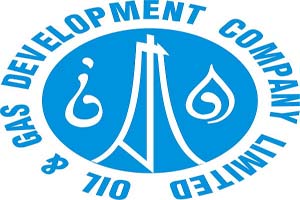
OGDCL drills four exploratory wells, makes three new discoveries in 1HFY23
Oil and Gas Development Company Limited (OGDCL) has drilled four exploratory wells and made three discoveries in the Punjab and Sindh provinces of Pakistan in the first half of the fiscal year 2022-23. The new discoveries have an expected production potential of 3,007 barrels per day of oil and 2.7 million cubic feet per day of gas. According to the company's first-half financial report, OGDCL completed the drilling and testing of six wells related to the previous fiscal years. During the period, the company produced 33,061 barrels per day of oil, 772 million cubic feet per day of gas, and 730 tons per day of liquefied petroleum gas, witnessing a slight decline compared to the same period of the previous year due to certain reasons. OGDCL is Pakistan's flagship company in the Exploration and Production sector, and it aims to play a vital role in enhancing the country's energy security. From July 2022 to December 2022, the company contributed 46%, 29%, and 37% towards the country's total oil, natural gas, and LPG production, respectively. As of December 31, OGDCL operated 49 exploration blocks, of which 23 were with 100% share and 26 under joint ventures.
|

Pharmaceutical goods’ export up by 32.37pc to $205.13m
The export of pharmaceuticals goods from the country has witnessed an increase of 32.37 percent during the first seven months of the fiscal year (2022-23) as compared to the corresponding period last year. Pakistan exported pharmaceutical products worth $205.138 million during the period from July-January (2022-23) as compared to the export of $154.973 million during July-January (2021-22), showing a growth of 32.37 percent, according to the Pakistan Bureau of Statistics (PBS). In terms of quantity, the export of pharmaceutical goods also rose by 104.67 percent from 16,718 metric tons to 34,217 metric tons, the data revealed. Meanwhile, on a year-on-year basis, the pharmaceutical goods’ export increased by 77.19 percent during the month of January 2023 as compared to the same month of last year. The pharmaceutical exports in January 2023 were recorded at $30.114 million against the export of $16.996 million in January 2022, the PBS data revealed. On a month-on-month basis, the exports of pharmaceutical goods however decreased by 3.41 percent in January 2023 as compared to $31.176 million in December 2022.
|

Cotton arrivals plunge 34.5 percent in February
Cotton production in Pakistan dropped by 34.5 percent in February as compared to the same month last year, mainly hit by catastrophic floods last year across the country. In Sindh, the production fell by 46.5 percent to 1.87 million bales, while in Punjab, cotton crop was in decline of 23.74 percent to 2.99 million bales, as per latest data released by the Pakistan Cotton Ginners Association as of March 1. The decline poses a significant threat to the textile industry that consumes around 14 million cotton bales annually to operate 24/7. Some large spinners, smelling shortages, booked large orders when cotton prices were at peak. By the time the shipments arrived, the cotton prices dropped by 20-25 percent in the international market. It coincided with a deep recession in the global market. Small spinners that operated on local supplies operated at 50 percent capacity. The larger spinners did operate 24/7 on strength of imports and local purchases.
|

Saudi prince launches $100m tech house in Pakistan
Saudi Arabia’s Prince Fahad bin Mansour on 6th March launched a $100 million Saudi Arabia-Pakistan Tech House, a new initiative aimed at creating opportunities through partnerships with information technology (IT) companies and enterprises in Pakistan. The joint venture is part of the Saudi Government’s Vision 2030 strategic framework, an effort to pivot Saudi Arabia away from oil dependency and establish it as a global investment powerhouse with a sophisticated digital infrastructure. The Kingdom is estimated to have mobilized around $500 billion to achieve the goals, including the development of new cities. Prince Fahad unveiled his plans to set up a tech house earlier this year during Pakistan’s largest tech conference, Future Fest. He had said the purpose of the tech house would be to improve business relations between Saudi Arabia and Pakistan. The tech house will be established under ILSA Interactive, a company co-founded by Prince Fahad and Pakistani entrepreneur Salman Nasir in 2009 that has offices in Riyadh and Lahore. “Today it is my honor to announce the launch of the Saudi Pakistan Tech House,” Prince Fahad said during the launching ceremony in Islamabad. “Our venture in Pakistan will be a catalyst for this partnership to provide a platform for greater collaboration and growth,” he said. Prince Fahad added the venture was a new dimension for greater cooperation and strengthening the longstanding strategic relationship between Saudi Arabia and Pakistan. “I would like to reassert that we are looking forward to creating more than 1,000 jobs in Pakistan and are expecting to have more than 300 projects with a minimum cost of $100 million in the next five years,” he added. He expressed confidence in Pakistan’s workforce and startups to form partnerships that would prove to be a game-changer for both countries’ IT sectors.
|
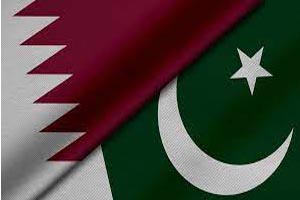
PM, Qatar Emir discuss economic, investment cooperation/span>
Prime Minister Shehbaz Sharif and Emir of Qatar Sheikh Tamim bin Hamad Al Thani, discussed a wide array of mutually-beneficial issues on strengthening cooperation between the two countries, particularly in the economic and investment sectors. During a meeting, the prime minister appreciated Qatar’s consistent support to the development projects in Pakistan and highlighted the multiple opportunities of cooperation between the two countries. The Emir of Qatar lauded the contributions of Pakistani manpower in his country’s development and especially referred to the excellent performance of Pakistani security authorities during the FIFA Football World Cup 2022 successfully hosted by Qatar, the PM Office Media Wing said in a press release. During the meeting, both the leaders also discussed investment, trade and export of further Pakistani skilled workers to Qatar. Sheikh Tamim welcomed the prime minister and reiterated his resolve to continue Qatar’s complete cooperation and support in the development and progress agenda of Pakistan.
|
|

© 2023 Alpine Marine Services Private Limited
all rights reserved
|
|
|